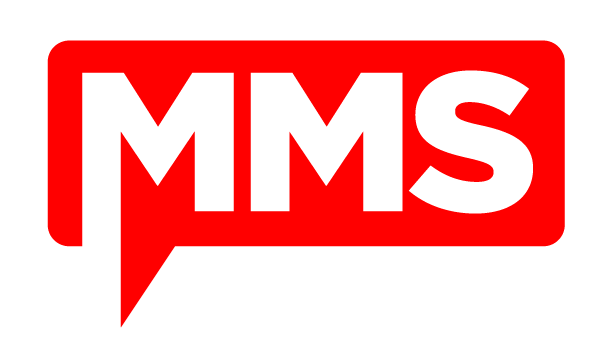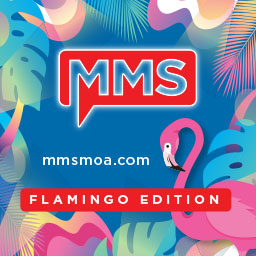
GnuCash For The Win
- Matt Zaske
- May 04, 2020
- 6 minutes
As I wrote about a couple months back, GnuCash is my accounting software of choice since ~2010. I wasn't exactly "sold" on it from the start, but it was a free and open-source solution that seemed robust enough to handle pretty much anything I could throw at it, from managing business finances and whatnot to a whole mess of personal accounts. Did I mention: free and open-source?
Way back in the day I used Microsoft Money as my primary 'bookkeeping' mechanism for personal finance. I liked that it was an easily understandable 'hybrid' of something as powerful as the de-facto Quicken, but more useful than something as simple as a set of spreadsheets/workbook. At some point during a computer upgrade cycle in the mid-aughts the program I no longer had a version of the application available, and with its forthcoming sunset and a changing personal finance situation it was time to look for something different.
GnuCash had the interface I sought
There's not much too flashy about the GnuCash interface, specifically the checkbook-style register/ledger; however, it was that style I needed to have. In having looked around a bit at the time, the GnuCash interface made the most visual sense to me in its entry interface, with quick ability to enter splits, clear or reconcile transactions, and a 'muscle memory' (auto-complete of repeat-like transactions). At least at face value, it seemed the obvious choice.
It has Graphs and Charts and Reports...and...!
One of the things I most liked about Money was its simple graphs and charts. I wanted a quick way to visually see some things, and it seemed as though GnuCash could do what I needed more or less right out of the box. Each graph, chart, and report is quite customizable, especially so if you dig into the self-created stylesheet preferences.
Ugh, What is this Double Entry Business?
This was ultimately my largest initial stumbling block. Everything I'd used previous was loosely-typed, as it were. I could just enter stuff and it'd work.
With GnuCash, this is decidedly not the case. Double entry means everything must balance out, with no exceptions. You could let it go, but anything that doesn't balance winds up being caught in one of two 'naughty' accounts for imbalance and orphaned transactions. While that might seem just fine and dandy out of the gate, you definitely don't want this to go on for long as it totally circumvents the entire value of the application.
At the end of the day, double entry means being deliberate with your accounts, categories, and hierarchies. As I'd mentioned in the previous post, having a grasp of what you intend to track and detail in advance can be super helpful in getting started. Additionally, I'd definitely recommend using the various account hierarchy wizards and setup features over creating your own, especially if you're unfamiliar (read: not an accountant) with the practice of double entry accounting.
Something I learned just this last week (and which I will write about in the future): it's possible to re-run just a portion of the new account hierarchy wizard to 'fill in the gaps' well into a book's creation or life. So don't try to make it perfect out of the box; instead, make it useful. Almost everything can be modified later if/as necessary.
Ongoing Modifications or Account Changes
Accounts can be modified later, but this is not helpful when first starting. Different account types inherently behave differently, so switching them all up on a whim at the beginning caused far more confusion for me than they solved. Even though a 'Credit Card' account is technically a 'Liability' and also a 'Bank' account, the register will have fields labeled very differently for these types of accounts and, depending how your preferences are set up, might actually reverse-balance compared to how you expect.
It's also super easy to change account parents, create 'placeholder' (roll-up) accounts. I have discovered much 'power' in parent/placeholder accounts and practical sub-accounts, especially for creating 'honorary' accounts for projects and specific use cases. I will write a future post about this particular topic.
All of this stuff really reinforces the idea: use the built-in account wizard/setup steps to get going. Don't go it alone.
What About the Help System?
I will be honest: I have historically not found the built-in GnuCash help system to be particularly valuable overall, especially for starting up. I hold a similar feeling for the online documentation and help manual. But my reason for that criticism is this: Those documents and systems don't seem to be written for the beginner.
What I personally found most helpful in starting up all those years ago were two things: using the wizards/built in functionality, and paying attention to the GnuCash Tutorial and Concepts Guide. This document is actually designed for the beginner (or as a refresher) and as such is written and structured in a way more useful for getting started and wrapping your head around how to use the application in a meaningful and practical way.
That being said, the help system I have found to be of most value for specific things after you're set up and comfortable with the application (read: a non-novice user), because there is substantial documentation and great pointers in the material. It just tends to be a bit too dense for beginners (overwhelming).
So if you're new, use the tutorial and concepts guide, but if you're familiar/old pro, dig deep into the robust help content.
Not Gonna Lie, It Took Dedication...
...to get started. Switching to such an application as GnuCash really does require a commitment, but I can absolutely affirm that once you've gotten over that initial hurdle and settled into productivity there's really nothing as 'simple' and powerful like it. Certainly not for free.
Since GnuCash has been around since ~2001 and continues to be well-developed and supported...it's a solid app for the long haul. It might not always be the prettiest or shiniest product, but damn is it a workhorse. Give it a shot. It really is the Swiss Army accountant of applications.
Headline image via giphy






